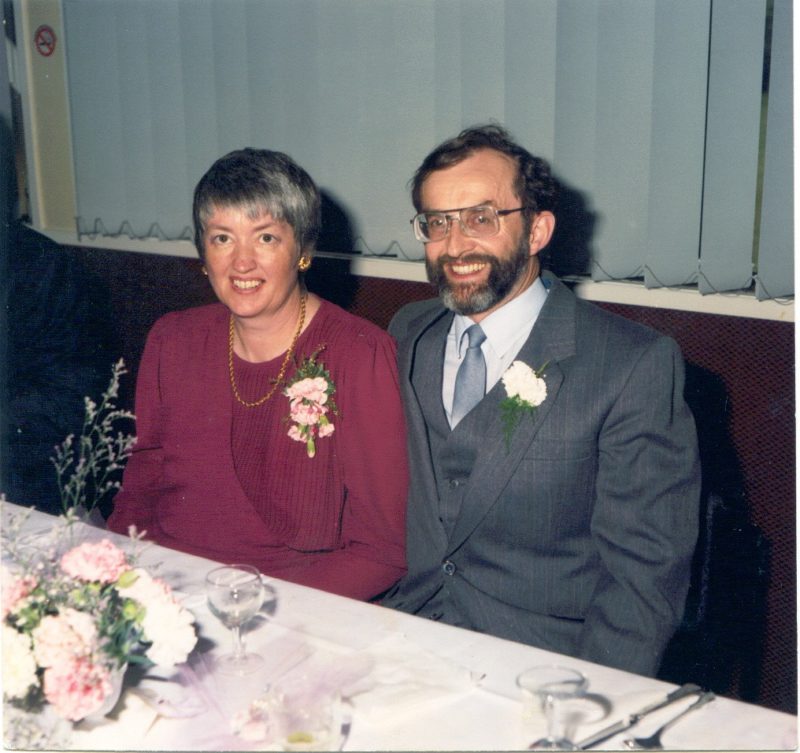November is a busy time of year. Exam season swings into action. Christmas plans are being made. There are major sports events like the Rugby World Cup, the Melbourne Cup and a cricket series between the Black Caps and England.
But for Catholics, November is a special month. There’s the ending of the liturgical year and the great feast of Christ the King. It is also special because it is the month when the holy souls are especially remembered and prayed for.
This November will be a special time for my family. Thirty years ago, my father Donald Otto died suddenly on November 22, 1989, of a heart attack. Only 49 years old, he was on a business trip/holiday with my mother Anne, when he complained of feeling unwell in a Geneva hotel room. A few hours later he had a sudden coronary and died. My mother was left alone, away from family, on the other side of the world.

It took about a week for my father’s body to be returned to New Zealand. When my mother arrived back, some eight days beforehand, the family assembled to be with her at home, and suddenly the undertaker turned up at the door asking about the whereabouts of the body. It was supposed to be on the same plane she was on. But an insurance wrangle meant Dad’s remains had not left France.
So what seemed like an interminable time of waiting happened, before the body arrived back in New Zealand — and it arrived on the day of my parents’ wedding anniversary. The funeral took place under a sort of remote control, or so it seemed.
As I recall, the Christmas that followed, a couple of weeks later, was desperately sad. Everyone was trying hard to be festive, but all we could see was the empty seat at the table.
In later years, my mother would refer to it as “that dreadful Christmas”. Our family had known such Christmases before. A baby of close relatives’ was stillborn on a Christmas Day in the 1970s. The hymn “Silent Night” would always make my mother cry.
In the years after 1989, the whole family suffered, each in our own ways. My father’s death was the first in a series of losses. Within two and a half years, my mother lost her husband, her mother, both parents-in-law and her dog. It was little surprise that her emotional state and mental health semi-collapsed under the strain.
Even her faith wavered. In later years, my mother would say that the only way she could reconcile what had happened to Dad was that he must have completed on earth what God had wanted him to. That thought, given to her by a respected priest, was her faith lifeline.
But that is not the end of the story. Joy was to come again for my mother — and indeed for the rest of the family — delivered in tiny, helpless packages; in the form of grandchildren. In many ways, they became my mother’s world, and she rose to life again, loving them. Life — and love — were very much the answer to death, praise God. (As an aside, based on my own experience, it troubles me that some in our society promote death — in various guises — as a solution to the problems of life).
My mother was a widow for some 23 years. In 2013, she died, after a mercifully short illness and, please God, joined my father in heaven. On their headstone, we had inscribed — “together again always”.
Many, many families have stories like the one above — different in terms of detail, but similar in terms of impact. They belong to what Soviet-era writer Nadezhda Mandelstam referred to as the category of “ordinary heartbreaks” — as quoted by Clive James. Love and loss are part of the human condition.
We live in such a fast-paced world. There are precious few times to stop and reflect. But much is lost when no time is made for reflection. In the shadow of loss, the light of love seems ever brighter and thus ever more to be cherished.
It is good that the Church makes room in its calendar for the remembrance of — and prayer for — the holy souls. It is also an appropriate time to give thanks for the gift of life itself, and to reflect upon how we are living that gift.
Eternal rest grant to them, O Lord. And may perpetual light shine upon them. Mum and Dad — may you rest in peace.

A vulnerable and important reflection on family tragedy.
Clive James’ “Cultural Amnesia”, which is where I suspect the quote originates, is a humbling education and antidote to the vapidity and propaganda of our time.